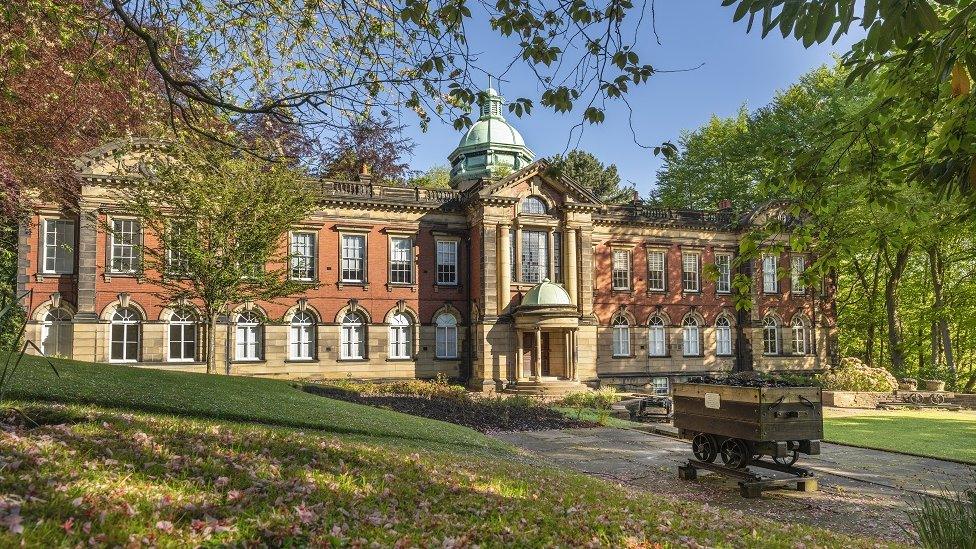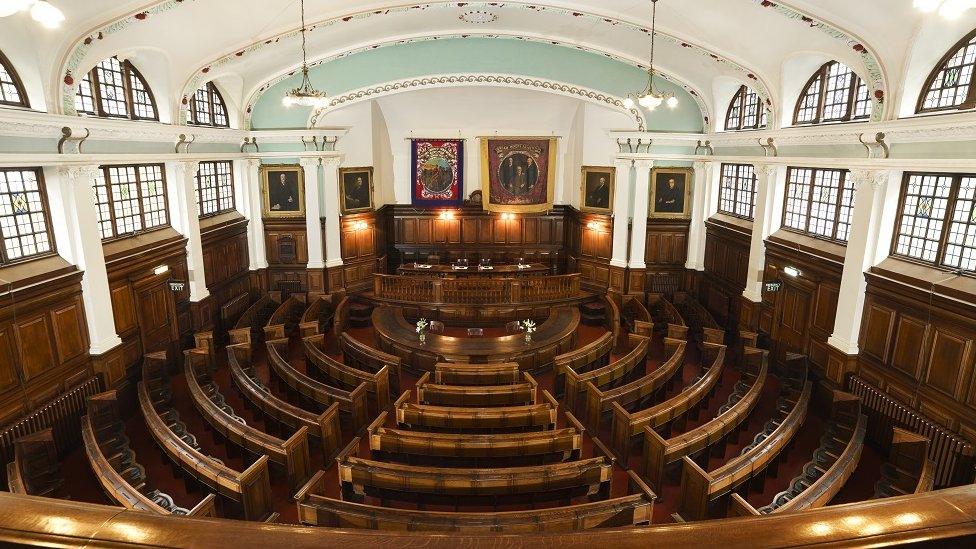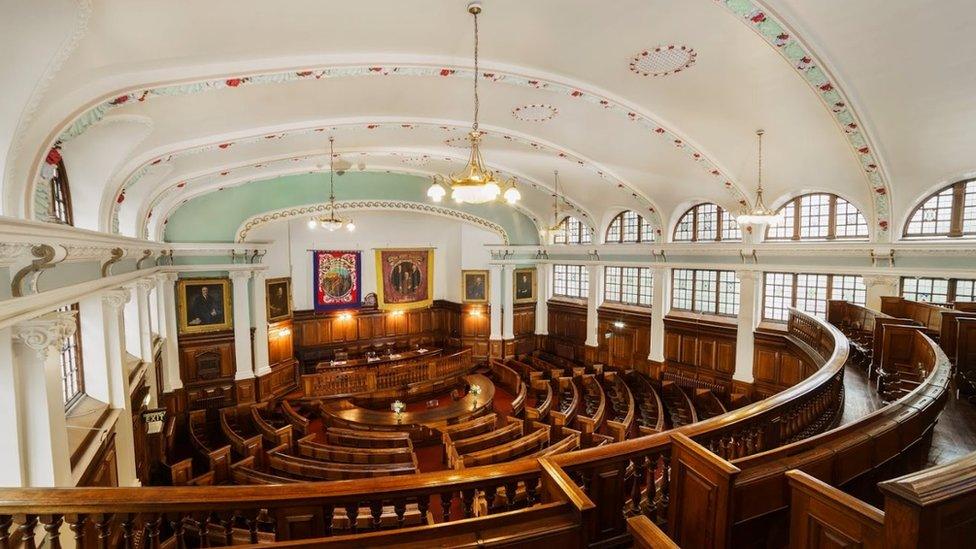Durham's Redhills suggested for Unesco status
- Published

Redhills was opened in Durham in 1915 as a meeting place for miners
A miners' hall in Durham could be one of eight global sites being put forward for Unesco world heritage status for its role in championing workers.
Redhills opened in Durham City in 1915 and is home to the Pitman's Parliament.
The Workers Museum in Copenhagen, external has listed it as one of it eight entries of workers assembly halls it hopes Unesco will confer its prestigious accolade on.
It would join Durham Cathedral and Castle in having the status.
Redhills was paid for by 200,000 working miners and was the hub and meeting place for those labouring in the Durham coalfields.
The Pitmans' Parliament, where miner representatives would meet and make decisions, is held up as an icon of worker democracy and commissioned a range of welfare support schemes including homes for aged miners, reading rooms and healthcare for sick and injured miners.

The Pitmans' Parliament was the debating chamber where decisions about the welfare of Durham's miners were made
Redhills charity chief executive Nick Malyan said: "The Miners' Hall embodies English working-class democracy, telling a powerful story of struggle and collective achievement.
"While the nomination and judging process will take time we welcome the opportunity to ensure the Durham coalfield's story is heard on the global stage it deserves."
Seven similar halls in Argentina, Australia, Belgium, Finland and Canada are also on the Workers Museum list which began with 74 applications.
Historic England will decide whether or not to progress Redhills' bid in January 2023 with Unesco to make a provisional nomination at the beginning of 2024 and confirm the status in 2025.
In the meantime, the miners hall is undergoing an £8.9m renovation to become an education, history and culture centre.

Follow BBC North East & Cumbria on Twitter, external, Facebook, external and Instagram, external. Send your story ideas to northeastandcumbria@bbc.co.uk, external.
Related topics
- Published8 April 2021

- Published4 December 2021

- Published10 March 2020
